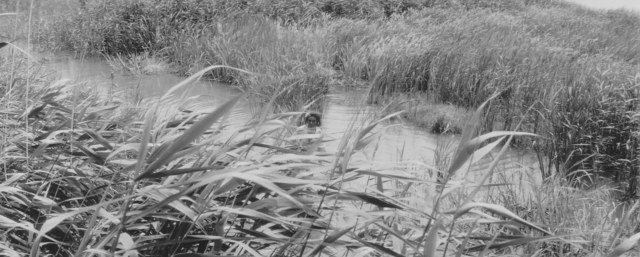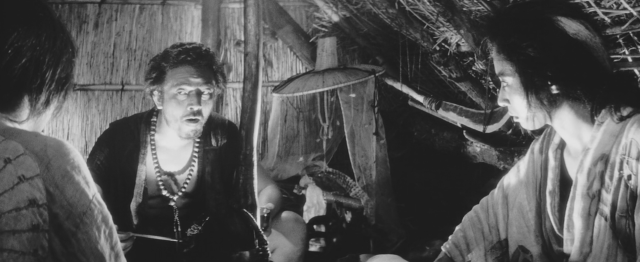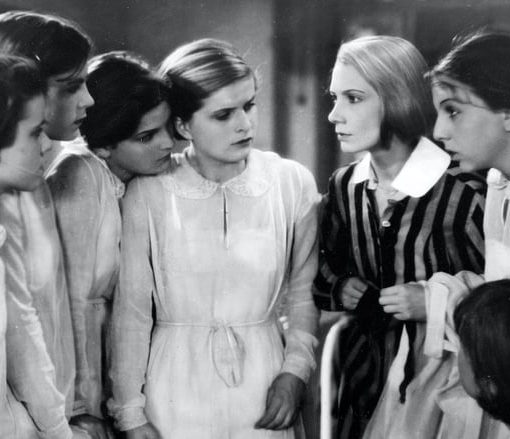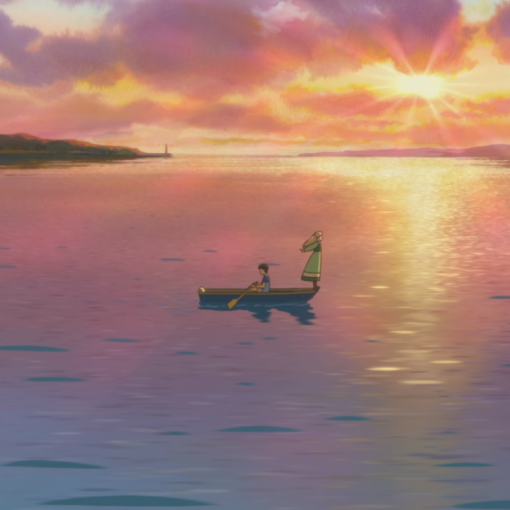 | Original title: Onibaba |
Rating:  (4.5 / 5) (4.5 / 5) | |
| Year: 1964 | |
| Director: Kaneto Shindô | |
| Duration: 103 min. | |
| Genre: Horror |
The Hole
Deep and dark
Its darkness has lasted
since ancient times
—
Onibaba
Expecting horror but getting so much more
Going by IMDb’s short description of this film, I was expecting a horror story of some swamp demon or whatnot terrorising the area. As it turns out, Onibaba is anything but that. The horror element is mostly within the atmosphere created by director Kaneto Shindô. He uses long shots of the wind blowing through the tall swamp grass in the night, fast drumbeat music and a lot of noises in the background. It is only during the last part of the film that the horror element also starts to show outside the scenery.
In other words: if you’re looking to see a standard horror film that lets your heart skip a few beats here and there, leave this one for another night. If you’re all right with a relatively slow paced film that constantly leaves you thinking about what you just saw, then wait for night – a rainy one preferably – and put this on. There is a constant unease to be felt while watching. It is guaranteed to keep you on the edge of your seat.
The events that occur in Onibaba are always ambiguous. You could just as easily explain each situation by means of something paranormal, or simply by a coincidental turn of events. Even the ending is open for interpretation. The film is also rather socially engaging. Many different subjects are brought up. Sins such as greed, envy and lust. But also humanity during times of war, the morality of killing and the difference between man and woman. Granted they are all subtly woven into the story, but they are there if you pay attention.
One example of the difference between man and woman clearly shows when the mother tries to trade gear for bags of food. She gets two bags, but has to practically beg and offer her body for a third. Later, a man brings similar gear and gets three bags without having to ask. He also snatches some dead birds and other goods without anyone objecting.
Onibaba
For the most part, this film is about telling the story of a mother and her daughter in law. They, along with several other people, had to leave Kyoto to live in straw huts in a nearby swamp. Two rivaling groups of warriors have now completely ravaged the city, destroying the local economy in the process. With all men fighting, there is no-one left to work the land, and so most of the harvest is lost too. The two women live off ambushing soldiers and samurai in the tall grass fields. Their dead bodies are thrown in the deep hole, while their weapons and gear are traded for food and clothes. They manage to live a decent life this way.
This life is disturbed one night when Hachi, one of the men that went to fight in the war, returns home. He tells of how Kichi got killed. Kichi is the son of the woman, and was married to the girl. They fought battles together, stole, killed and even switched sides. Eventually they had to run from a large group of angry farmers. Kichi got killed, while Hachi barely managed to escape. Soon, Hachi teams up with the two women in killing even more warriors for their gear.
Almost immediately Hachi starts to make advances on Kichi’s widow. This is much to the mother’s disapproval. Unfortunately for her, the two secretly start seeing each other at night. That is, the girl thinks she is sneaking out, but the mother knows. She desperately tries to keep the two apart. She fears her own life might suffer if they were to get together. One night, a samurai wearing a strange mask forces the mother to lead him out of the swamp towards Kyoto. The terrifying demon mask could be the solution to the mother’s problem.






